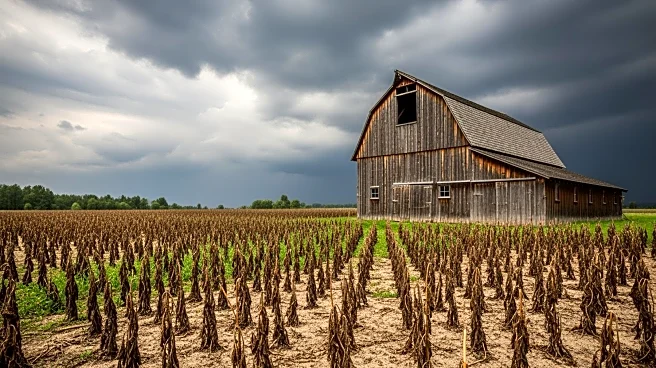What's Happening?
Indiana farmers are experiencing significant economic challenges due to uncertainty in the agriculture sector. A recent meeting highlighted critical issues such as rising input costs and insufficient economic returns
on staple crops like corn and soybeans. Farmers are exploring diversification into specialty crops and investing in research to manage costs effectively. According to Purdue's budget figures, the current market prices for corn and soybeans are approximately a dollar below the established cost of production, exacerbating financial pressures. Local soybean farmers are also anticipating purchases from China, which could impact their economic outlook.
Why It's Important?
The economic challenges faced by Indiana farmers have broader implications for the U.S. agriculture industry. Rising input costs and low returns on major crops could lead to financial instability for farmers, affecting rural economies and food supply chains. Diversification into specialty crops and increased research investments may offer some relief, but the situation underscores the need for strategic policy interventions to support farmers. The anticipated soybean purchases from China could provide a temporary boost, but long-term solutions are necessary to ensure sustainable agricultural practices and economic viability.
What's Next?
Farmers and industry stakeholders are likely to continue monitoring market conditions and exploring diversification strategies to mitigate financial risks. Potential policy responses from state and federal governments could include subsidies or support programs to help farmers manage input costs and improve crop profitability. The outcome of soybean purchases from China will be closely watched, as it may influence future trade negotiations and economic strategies within the agriculture sector.
Beyond the Headlines
The ongoing challenges in agriculture may prompt discussions on the ethical and environmental implications of current farming practices. As farmers seek to diversify and innovate, there could be shifts towards more sustainable and environmentally friendly agricultural methods. This transition may also influence cultural perceptions of farming and rural life, highlighting the resilience and adaptability of the farming community in the face of economic adversity.










